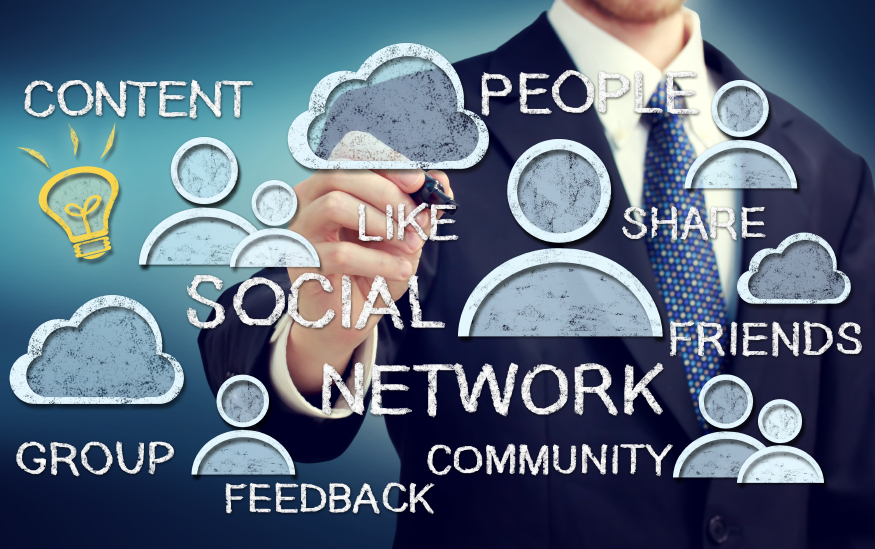Patient Summit USA
Understand the patient journey to build better adherence and engagement platforms
Social Media: Connect, Inform, Empower
Eighty-one percent of adults use the internet to seek information about health. Increasingly, people turn to social media for advice and support, but pharma still hasn’t fully embraced this trend.

Information found online can influence how a patient perceives and treats their illness. In a 2007 survey, 32% of patients admitted that what they learn on the Internet impacts their treatment decision, while 50% said they bring the information they find online to their physician. Why should pharma care?
“As patients are getting more information online, pharma companies need to realize that now there are more sources of information about their product than just the leaflets [pharma] themselves provide,” explained Michele Derai, CEO, Aptel Research. Social media is one of the resources patients turn to.
Social media: Get involved
Although pharma falls under strict regulations that prohibit them from talking directly to patients, there is no reason to shy away from social. One way to get involved is to follow the conversations patients have amongst themselves on publically available forums, and identify gaps in communication and misunderstandings about the therapies. “Pharma should be aware of what the issues are, and address them through their marketing campaigns and patient services,” Derai said.
Another way is to engage with associations for patients. These associations provide a big opportunity to educate patients, and in a market where good outcomes are currency, the right information at the right time is crucial. But cooperating with patient organizations can be tricky, and while it can help improve industry’s image, pharma must remember to work according to their partner’s agenda rather than their own. “Working with patient organizations will allow healthcare companies to identify patient needs. Respond to them. Make sure patients are appropriately informed, so they can make the right decisions in managing their condition and be truly empowered,” Derai stressed.
Social media helps patients be more aware
Being a part of online communities allows patients to give and receive social support, tell their own story, have less feelings of isolation or shame, and gain confidence in managing their medical condition".
There are a number of reasons patients turn to social media for information on health and disease. First, social helps patients become better informed, allowing them to seek help when necessary, and then make decisions about their treatment. Second, looking up information and developing a basic understanding about a condition before a healthcare appointment allows for a more efficient visit, since patients are better prepared to ask their physician questions. Third, if patients seek information after the visit, it may supplement what they have learnt from their physician and answer any remaining questions. Finally, being a part of online communities allows patients to give and receive social support, tell their own story, have less feelings of isolation or shame, and gain confidence in managing their medical condition.
“[Online exchange] represents the needs patients have. When they speak to their doctors they get a lot of information about disease, but they don’t know how it’s going to impact their life. Social media fills this gap by sharing personal stories. A doctor can’t tell you what’s it going to be like living with a condition, it’s only through other patients that you can learn that,” Derai added.
Not all online sources are reliable
One of the main risks associated with using the internet and social media for health and disease is the quality of information that can be found online. Patients often lack the expertise to determine whether or not the information they find online is credible and from a trustworthy source. Patients may find information about unproven treatments, which may lead them to use the incorrect information to influence their treatment decisions. In this case, patients are in fact “disempowered” by their false knowledge.
“Misinformation is the biggest problem with using social media,” Derai admitted. “Patients may hear from other patients about side-effects that are minor in reality, but are blown out of proportion when shared on a forum. Another problem is that anyone can go on social media and create rumors about products, which can be dangerous for the patients,” Derai continued.
Unreliable sources put patients at risk of, for example, unnecessary medical procedures, or of not following the advice of their healthcare provider. To avoid that, physicians should get involved and point patients toward credible online sources.
Caution advised
There are pros and cons to using the internet for health information. While on the one hand, the practice can be empowering and have a positive impact on patient experience and engagement with their condition, on the other hand, it exposes a vulnerable population to rumors that can be scary. Pharma can and should intervene by supporting accurate information and reliable advice.
Patient Summit USA
Understand the patient journey to build better adherence and engagement platforms
